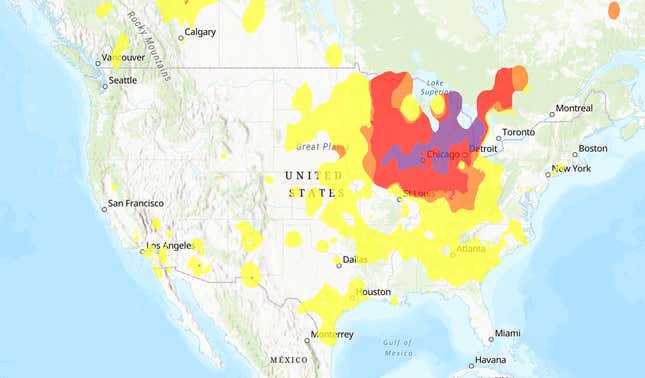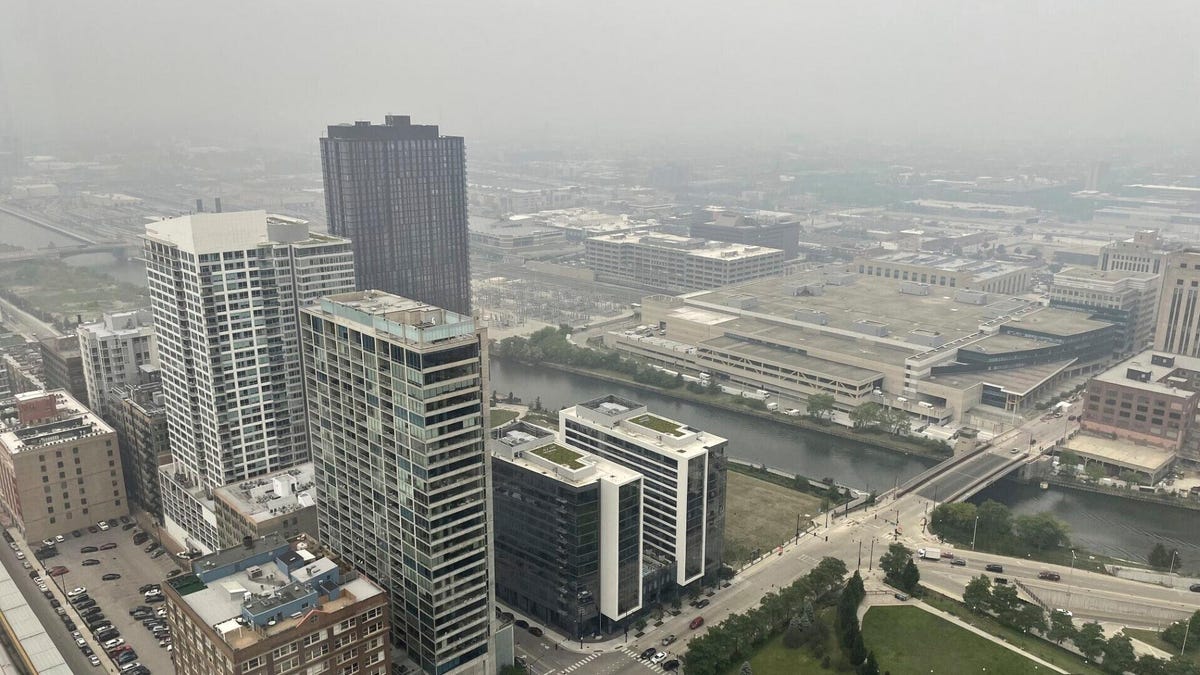A gust of wind from the great white north has pushed Canadian wildfire smoke down into the Midwest. Cities around the Great Lakes region are now shrouded in smoke. Skylines are pretty hazy, and air quality has plummeted.
It may not be the movie filter-like orange haze that we saw over NYC earlier this June, but it’s still pretty damn bad. The air quality right now is categorized as extremely unhealthy, and it’s the worst of any major city worldwide, according to data from IQAir. According to the U.S. Environmental Protection Agency’s AirNow air quality monitor, Chicago’s air quality is “very unhealthy” this afternoon. The city’s air quality index is over 200, healthy aqi levels are under 50.

City officials and agencies have asked residents to take precautions until the smoke clears up. “We recommend that children, teens, seniors, people with heart or lung disease, and pregnant individuals avoid strenuous activities and limit their time outdoors,” the official City of Chicago account tweeted.
The smoke has also affected other cities in the Midwest. As of this afternoon, Detroit has the second-worst air quality of any major city in the world. Air quality is currently unhealthy. Minneapolis has ranked seventh in worst air quality worldwide this afternoon.
“Wednesday, June 28th has been declared an Air Quality Action Day for elevated levels of particulate matter (PM2.5) due to Canadian wildfire smoke moving in,” the Detroit National Weather Service station tweeted today. “Sensitive groups should limit prolonged or heavy outdoor exertion tomorrow.”
This summer could be the worst wildfire season that Canada has ever experienced on record according to officials, CNN reported. As of yesterday, there were 288 active fires throughout the country. Earlier this month when wildfire smoke shrouded the East Coast, there were about 430 fires throughout the country. More than 250 of those fires are considered out of control according to government data.
Want more climate and environment stories? Check out Earther’s guides to decarbonizing your home, divesting from fossil fuels, packing a disaster go bag, and overcoming climate dread. And don’t miss our coverage of the latest IPCC climate report, the future of carbon dioxide removal, and the invasive plants you should rip to shreds.







